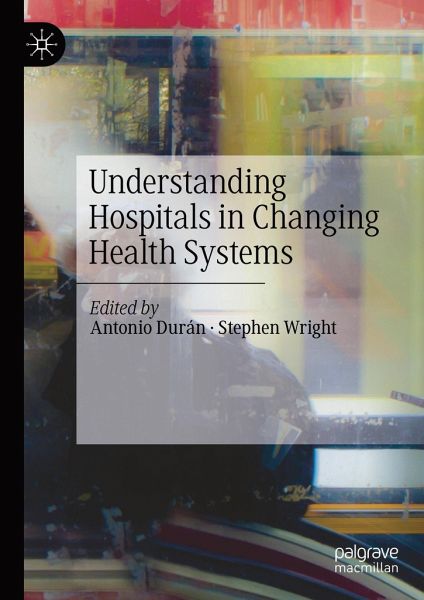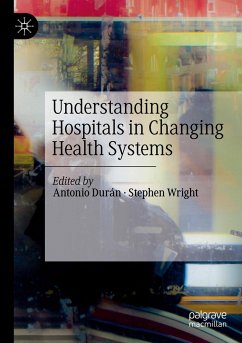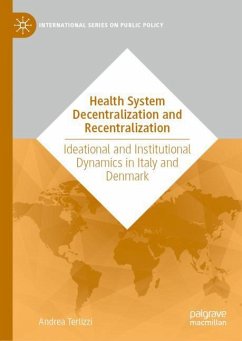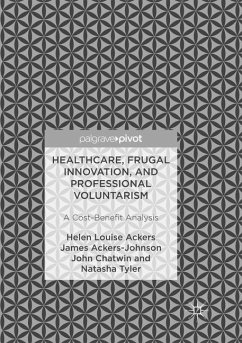
Understanding Hospitals in Changing Health Systems

PAYBACK Punkte
34 °P sammeln!
"This timely book provides insight into the changing role of the 'hospital' in the face of technological, organizational innovation and ever-tightening health budgets."James Barlow, Imperial College Business School, UK"This book covers various relevant aspects of the hospital in different states and contexts. Underlining the importance of business models for future hospitals, this publication presents models of care from a historic and a current perspective. All authors possess a deep insight into different health care systems, not only as scholars but as experts working for world-renowned hea...
"This timely book provides insight into the changing role of the 'hospital' in the face of technological, organizational innovation and ever-tightening health budgets."James Barlow, Imperial College Business School, UK
"This book covers various relevant aspects of the hospital in different states and contexts. Underlining the importance of business models for future hospitals, this publication presents models of care from a historic and a current perspective. All authors possess a deep insight into different health care systems, not only as scholars but as experts working for world-renowned health policy institutions such as the World Health Organization, the World Bank or the European Observatory for Health Systems."Siegfried Walch, Management Center Innsbruck, Austria
"For an organisation like mine, representing those involved in the strategic planning of healthcare infrastructure, this book provides invaluable insights into what really matters - now and for the future -in the complex and contentious field of hospital development."Jonathan Erskine, European Health Property Network, Netherlands
This book seeks to reframe current policy discussions on hospitals. Healthcare services turn expensive economic resources-people, capital, pharmaceuticals, energy, materials-into care and cure. Hospitals concentrate the use and the cost of these resources, particularly highly-trained people, expensive capital, and embedded technologies. But other areas of health, such as public health and primary care, seem to attract more attention and affection, at least within the health policy community. How to make sense of this paradox? Hospitals choose, or are assigned, to deliver certain parts of care packages. They are organised to do this via "business models". These necessarily incorporate models of care - the processes of dealing with patients. The activity needs to be governed, in the widest senses. Rational decisions need to be taken about both the care and the resources to be used. This book pulls these elements together, to stimulate a debate.
"This book covers various relevant aspects of the hospital in different states and contexts. Underlining the importance of business models for future hospitals, this publication presents models of care from a historic and a current perspective. All authors possess a deep insight into different health care systems, not only as scholars but as experts working for world-renowned health policy institutions such as the World Health Organization, the World Bank or the European Observatory for Health Systems."Siegfried Walch, Management Center Innsbruck, Austria
"For an organisation like mine, representing those involved in the strategic planning of healthcare infrastructure, this book provides invaluable insights into what really matters - now and for the future -in the complex and contentious field of hospital development."Jonathan Erskine, European Health Property Network, Netherlands
This book seeks to reframe current policy discussions on hospitals. Healthcare services turn expensive economic resources-people, capital, pharmaceuticals, energy, materials-into care and cure. Hospitals concentrate the use and the cost of these resources, particularly highly-trained people, expensive capital, and embedded technologies. But other areas of health, such as public health and primary care, seem to attract more attention and affection, at least within the health policy community. How to make sense of this paradox? Hospitals choose, or are assigned, to deliver certain parts of care packages. They are organised to do this via "business models". These necessarily incorporate models of care - the processes of dealing with patients. The activity needs to be governed, in the widest senses. Rational decisions need to be taken about both the care and the resources to be used. This book pulls these elements together, to stimulate a debate.












